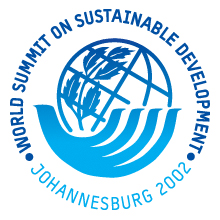Total Water Programme
Description
Description
The overall goal of the Total Water Programme (TWP) is to improve the livelihood of people by mobilising the communities to greater care of and better use of water and the natural resources influencing the water cycle.
The two year TWP mobilises communities for activities that improve conditions for both people and environment in the project area:
- The land degradation component assists the local communities in reducing land degradation and enables them to safeguard the local resources for sustainable use also for future generations
- The deforestation component will benefit the ones, mostly women and girls, who collect firewood for household energy. In the long run this also improves local water balances.
- The restoration component starts restoration of selected degraded nature areas, thus reducing erosion and siltation of rivers, increasing the recharge of groundwater so less wells run dry.
- The safe water component reduces the workload of fetching water and reduces water related diseases
- The sanitation component reduces the number of diseases and child mortality. Furthermore the compost produced by the ecolatrines improve tree and food production.
- The component of water efficient farming improves food security and reduces the loss of valuable nutrients.
The two year TWP mobilises communities for activities that improve conditions for both people and environment in the project area:
- The land degradation component assists the local communities in reducing land degradation and enables them to safeguard the local resources for sustainable use also for future generations
- The deforestation component will benefit the ones, mostly women and girls, who collect firewood for household energy. In the long run this also improves local water balances.
- The restoration component starts restoration of selected degraded nature areas, thus reducing erosion and siltation of rivers, increasing the recharge of groundwater so less wells run dry.
- The safe water component reduces the workload of fetching water and reduces water related diseases
- The sanitation component reduces the number of diseases and child mortality. Furthermore the compost produced by the ecolatrines improve tree and food production.
- The component of water efficient farming improves food security and reduces the loss of valuable nutrients.
Partners
Major Groups:
The GAIA-Movement Trust Living Earth Green World Action (The GAIA-Movement) (Switzerland)
Ajuda de Desenvolvimento de Povo para Povo (ADPP) (Mozambique)
People to People (DAPP) (Zambia)
People to People (DAPP) (Zimbabwe)
The GAIA-Movement Trust Living Earth Green World Action (The GAIA-Movement) (Switzerland)
Ajuda de Desenvolvimento de Povo para Povo (ADPP) (Mozambique)
People to People (DAPP) (Zambia)
People to People (DAPP) (Zimbabwe)
SDGS & Targets
N/A
SDG 14 targets covered
Deliverables & Timeline
N/A
Resources mobilized
N/A
Partnership Progress
No progress reports have been submitted.
Please sign in and click here to submit one.
False
Feedback
Action Network


This initiative does not yet fulfil the SMART criteria.
Timeline
01 January 1970 (start date)
01 December 2008 (date of completion)
Entity
N/A
Goals
N/A
More information
Countries
N/A
